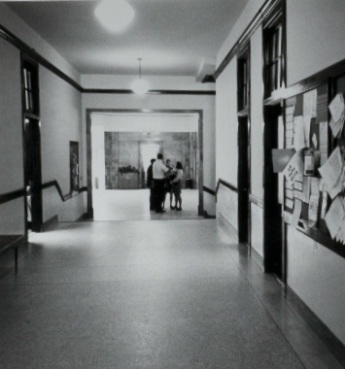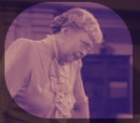
Find what’s yours . . . truly.
copyright 2019 Dan Christensen
Thrifty DIY to Please the Eye

Find what’s yours . . . truly.
copyright 2019 Dan Christensen
Posted in Uncategorized
Enjoyed for the sound it makes more than the way it looks–I’ve come across lots of prettier ones that don’t sound as good as this one–my balcony garden fountain developed a leak out the bottom. I thought of painting it with tar on the inside but then I really didn’t want to spend the money on a bucket of tar and risk failing to seal the crack that has limited access anyway. I then thought of forcing an empty yogurt container down into the tight space but figured I would not be able to seal around the opening where the water re-enters to be pumped back up to the top.
The solution? Create a new reservoir AROUND the existing one.
Leaving the fountain in the sun for a few minutes softened the tubing so I could pull it and the electric pump out of the way. Then I carefully broke out the bottom with a hammer. I found plastic bottle with appropriate width and trimmed it to desired height with a razor blade. The ceramic fit. I filled the new plastic reservoir with water, plugged it in, and tucked the fountain under the hosta leaves where it has chirped nicely for years.
The ceramic fit. I filled the new plastic reservoir with water, plugged it in, and tucked the fountain under the hosta leaves where it has chirped nicely for years.

Décor alert! Moss and the antique cast iron humidifier from my parents’ old coal furnace complement the fountain’s ability to please the ear.

Find what’s yours . . . truly.
copyright 2016 Dan Christensen
Posted in Uncategorized

Some ideas I’ve distilled through study this morning.
Acts 8:26-40
Find what’s yours . . . truly, danscir52
copyright 2015 Dan Christensen all rights reserved
Posted in Uncategorized
I guess it’s not by chance I spent
Find what’s yours . . . truly, danscir52
copyright 2014 Dan Christensen all rights reserved
Eyes closed, my hand retrieved the reading glasses from my nose.
I let my forearm glide along the front edge of the couch
while the glasses slipped unbroken from my sleepy fingers.
The street had just gone quiet on the cusp of night–
a first cold evening in October of these last
we can still see twilight at 7 (until Daylight Savings
comes again). The room had dimmed.
Scared awake suddenly by my perfect,
theatrical dying gesture–and aware of my aloneness–
I wondered:
Will I make a long exhale
some evening before winter settles in
not noticing how my fingers have released their grip
on instruments of sight?
Will I sense my way alone along a street I don’t remember
ever quite as silent?
Will I then look back and miss this sprawl of body
pressing cushion, and the heavy back of hand
against a floor?
Find what’s yours . . . truly, danscir52
copyright 2014 Dan Christensen all rights reserved
Find what’s yours . . . truly, danscir52
copyright 2014 Dan Christensen all rights reserved
Posted in Uncategorized
One year later, Bob and Ginny called to request Dad speak at his cousin Nell’s funeral in Ogden. The funeral would be conducted by the Presbyterian Church but, by bringing Dad into the picture (who brought along the musical number Susan and I would perform) and the Sign Language interpreter (a local Relief Society sister), the minister found himself sharing a program with those who spoke a slightly different religious language. As carefully as she had attended to affairs in the event of her death, Nell’s plan needed to be augmented a little with what her only heir, a Mormon convert, and her daughter-in-law wanted to hear–including, perhaps, that she had gone ahead to “prepare a place” for them.
Speaking of those of us who speak Mormon–we resonate to the word “mansions.” It goes with our ideas of reward and a notion of distinct levels–earned by achievement–as we inherit the Celestial Kingdom. How do we imagine this reward? Perhaps we envision our post-mortal home as luxurious, where every comfort is the concern of a perfectly-attentive staff. Perhaps that’s why “mansion” was chosen as the Bible became translated into English. Back then, faithful peasants must have been especially drawn to this hope of Heavenly privilege enjoyed by only the highest caste in their society.
The word used in the original Greek is mone, “dwelling; the act of staying or residing.” (I see a parallel in Spanish with the word hacienda. It could be translated into English as “farm” or even “dude ranch” but the term literally derived from the present participle of the verb “to do” which is “doing.”) In the same sentence we can apply the biblical meaning of a father’s “house” which is “family.”
Combining these two definitions, can we understand that we belong to a family where acts of living together are accommodated?
A personal word about “house.” A decade ago, I was desperately trying to save my house, a pursuit I deemed worthy of my prayers. I knew those prayers were heard (just assumed the answer was “no”). But now I see how Heaven graciously interpreted the more important meaning of the word I was using. I have been blessed with the most luxurious house apart from any physical structure. My children sustain acts of dwelling, being present, which I now see as infinitely more valuable than the art on my walls or my relative station in the ‘hood.
More shades in the scripture’s meaning: “I will come again and receive you unto myself.” This Savior doesn’t just show us once. He comes again. If we pattern our behavior after his, we receive him also. Dwelling is the act of being present with the Divine.
Find what’s yours . . . truly, danscir52
copyright 2014 Dan Christensen all rights reserved
Posted in Uncategorized
 Every month, I stood in a line that stretched along the inside counter of the cramped office and sometimes into the hall. That’s how we bought lunch tickets. Mrs. Crawford took cash or check ($5, which later went up to $5.20). She never asked for my name but quickly wrote it in her small uniform cursive across the bottom of the palm-sized ticket. If I had been a day or two late bringing my money, Mrs. Crawford took out her lunch punch to make the ticket reflect how I was in the black again. I watched her go through the same process with other children in line. She seemed to keep all our names and accounting in her head.
Every month, I stood in a line that stretched along the inside counter of the cramped office and sometimes into the hall. That’s how we bought lunch tickets. Mrs. Crawford took cash or check ($5, which later went up to $5.20). She never asked for my name but quickly wrote it in her small uniform cursive across the bottom of the palm-sized ticket. If I had been a day or two late bringing my money, Mrs. Crawford took out her lunch punch to make the ticket reflect how I was in the black again. I watched her go through the same process with other children in line. She seemed to keep all our names and accounting in her head.Find what’s yours . . . truly, danscir52
copyright 2014 Dan Christensen all rights reserved
Posted in Uncategorized
The Honorable Governor Herbert,
Speaking as the oldest child (and trustee of my parents’ estate), my 66-year-old sister described her frustration at my lack of marital and financial success: “Why didn’t it work for him? Dan had all the advantages offered the rest of us.”
Yes, my parents supported my schooling. I was given music lessons, had my teeth straightened, I was driven to part time and summer employment. They attended my concerts and plays. They supported my LDS mission. My marriage to Paula (as another, 29 years later, briefly to Barbara) was as much or more celebrated compared to those of the other five siblings.
But I was an obedient son/citizen: I kept myself hidden. I stayed properly ashamed.
Not necessarily inspired by my sister’s statement (heard through another sister) four years ago, I have made concerted effort to come out of the closet as a gay man. I have had frank discussions with my LDS bishops and stake president. I have had professional counseling. Along the way, while reading the introduction to Carol Lynn Pearson’s No More Goodbyes–Circling the Wagons Around Our Gay and Lesbian Brothers and Sisters, I allowed myself the possibility of unconditional love. I believe this to be the most moral thing I ever did!
It is immoral of society to pressure people like me to hide and/or ignore ourselves. What have you–as a citizen of Utah–missed out on because I have been doing what I was told to do? It is immoral of society to not give the children of gays and lesbians the same standing as other children. I have stellar offspring who only now–as adults–are dealing with the realities of having a gay father. But, how much better for them if they could have grown up with the truth and without stigma? It is immoral of my church to insist God loves me . . . except. It was immoral of me to believe it.
Be moral, Governor Herbert. Recognize me, my children, and others like us as full human beings, full participants in society. You might risk your position in your party but you are poised to be an emancipator! The people and institutions of Utah–including members of the LDS Church–need you to take the lead.
Sincerely,
Dan Christensen
Find what’s yours . . . truly, danscir52
copyright 2014 Dan Christensen all rights reserved
Posted in Uncategorized
“Hip! Hip for Hattie!”


Find what’s yours . . . truly, danscir52
copyright 2013 Dan Christensen all rights reserved
Posted in Uncategorized